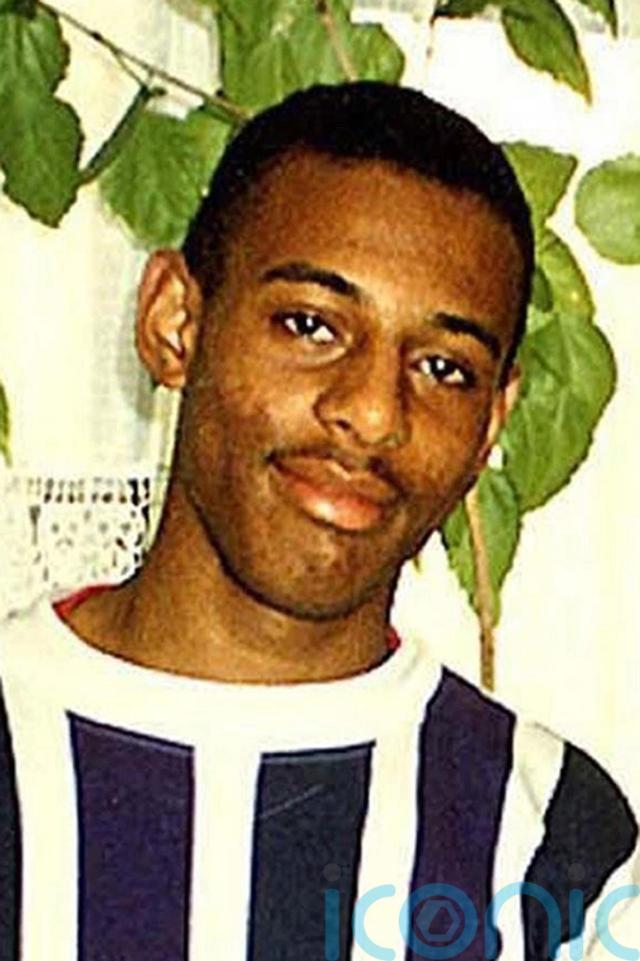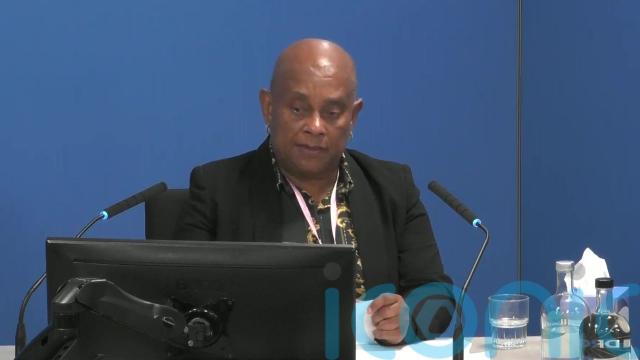
The mother of murdered Stephen Lawrence broke down in tears as she told a public inquiry she has not been able to grieve her son properly for 32 years.
Baroness Doreen Lawrence has campaigned for justice since her eldest child Stephen, then 18, was murdered by a gang of racists in 1993.
In an emotionally charged end to a day of giving evidence to the public inquiry into undercover policing, Lady Lawrence said her family had “been punished for 32 years”.
She told the hearing: “For the past 32 years I haven’t had the opportunity to grieve my son properly because I have had to challenge every step of the way, why the police felt that they could not investigate his murder properly.
“Your skin colour should have nothing to do with it. When somebody has done something wrong, they need to be punished.
“Stephen did nothing wrong, but we have been punished for the past 32 years.”
Incompetence and claims of corruption dogged the first failed investigation into his death, and in 2014 whistle-blower and former undercover officer Peter Francis claimed he had been tasked with gathering information to smear the Lawrence family.
This is denied by the Metropolitan Police.
Deputy Assistant Commissioner Jon Savell attended Thursday’s hearing and privately apologised to Lady Lawrence on behalf of the Commissioner.
Earlier she told the inquiry that police officers had tried to pit her against her ex-husband Neville.
She said that officers found her “challenging” and that she became guarded about what she would say in front of them.

Undercover officers gathered information about the family’s justice campaign, including in 1998 that Doreen and Neville Lawrence were splitting up.
In an interview in 2013, the officer who gathered the information, cover name David Hagan, said he thought the detail was relevant for police because the campaign group he had infiltrated, Movement For Justice, wanted to exploit the situation.
He said: “I believe it should be intelligence. It is relevant. The MFJ were going to try to exploit it.
“The MFJ believed they might be able to target Neville after they’d split up.”
Lady Lawrence told the inquiry her personal life should not have been a matter for the police.
She said: “For them to see it as good intelligence and to be able to capitalise on our personal relationship, I have no idea how that would be of interest to anybody.
“I felt that sometimes that the police were trying to manipulate our relationship, because I think they found me quite challenging. There were times that they would try to pit us against each other.
“If you think about a family grieving, whatever (is) happening in the background, that should have been of no concern to the police.”
The inquiry heard that the information was passed to an officer who was working as part of the Commissioner’s team at the Macpherson Inquiry into Stephen’s death and its aftermath.
Lady Lawrence said: “I think our family life is private and it should not have been in a police report. And for those in undercover policing who think that’s the right thing to do, that’s just disrespecting us.”
Talking of her family’s fight for justice, she said: “As a family we should not have gone through this.
“We’ve not had an opportunity to grieve over our son because we are constantly battling, you know fighting, for something that should be there readily for us.”
She was shown a series of intelligence reports from 1998 linked to the justice campaign for Stephen.
Lady Lawrence said: “If they were able to put that amount of attention and resources into discrediting us as a family, if they’d put that amount of attention into seeking and to finding Stephen’s murderers, we would not be sitting here today.
“All the time during Stephen’s investigation all I wanted was to be treated the same. I wasn’t looking for special treatment.
“It is your job to investigate Stephen’s murder and that’s all I wanted.

“To have spent their time looking to smear and to find things to destroy us as a family, it’s hard to believe that people go to that extreme.”
She told the hearing that police assumed her family were criminals because they were black.
She said the police did not seem interested in investigating her son’s murder and did not act on information passed on by them as well as people in the local community.
Lady Lawrence told the hearing: “If Stephen had been white they would have looked at it completely differently.”
She went on: “The police did not want to know. People in authority did not want to know. Just another black boy has been murdered, so what? We were ignored. Constantly ignored,” she said.
Lady Lawrence added: “We had done everything that we could do to support the police, but in the end they did nothing to support us.”
Outrage over the claims that Stephen’s family had been spied on was one of the key catalysts for the mammoth Undercover Policing Inquiry (UCPI), which began in 2015.
Whistleblower Mr Francis said that his bosses were racist, with one known as HN86 referring to black justice campaigners as monkeys, which the officer denies.
The UCPI is looking at the activities of undercover officers from the secretive Metropolitan Police units the Special Demonstration Squad (SDS) and the National Public Order Intelligence Unit.
It is claimed that they deceived women into sexual relationships, including having children, used the identities of dead children without their families’ permission, and spied on family justice campaigns.
The latest stage of the inquiry, that is looking at the SDS between 1993 and 2007, began in October.
Subscribe or register today to discover more from DonegalLive.ie
Buy the e-paper of the Donegal Democrat, Donegal People's Press, Donegal Post and Inish Times here for instant access to Donegal's premier news titles.
Keep up with the latest news from Donegal with our daily newsletter featuring the most important stories of the day delivered to your inbox every evening at 5pm.